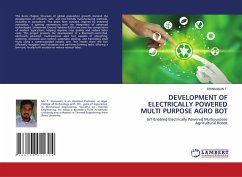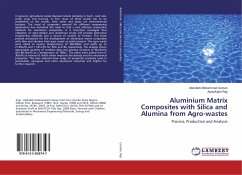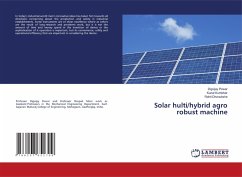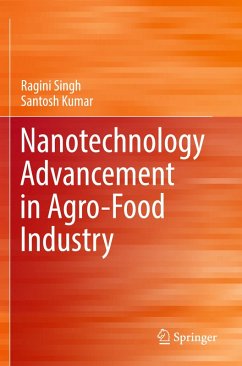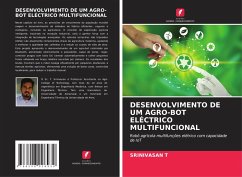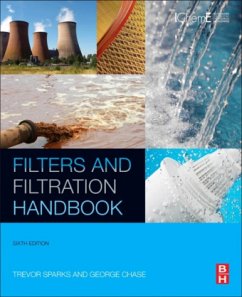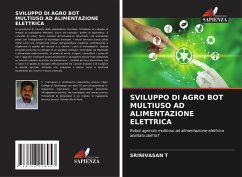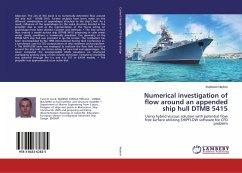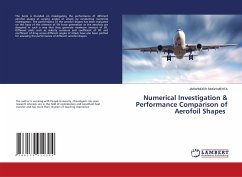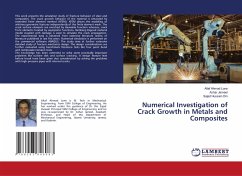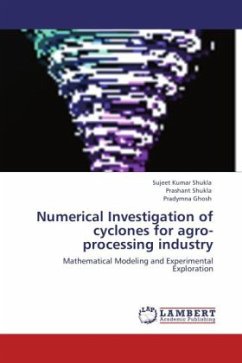
Numerical Investigation of cyclones for agro-processing industry
Mathematical Modeling and Experimental Exploration
Versandkostenfrei!
Versandfertig in 6-10 Tagen
45,99 €
inkl. MwSt.

PAYBACK Punkte
23 °P sammeln!
Cyclones were developed in the late 18th century and are still the most popular cleaning devices used in many industries. Many (semi-) empirical models have been proposed to design and assess the cyclones in terms of pressure drop, energy requirement and collection efficiency. However, these models have certain limitations in characterizing the cyclone because each cyclone is specific in nature due to unique flow characteristics and follows dedicated co-relations, the constants and coefficients of models need to be updated for each and every situation. Moreover, the flow fields associated with...
Cyclones were developed in the late 18th century and are still the most popular cleaning devices used in many industries. Many (semi-) empirical models have been proposed to design and assess the cyclones in terms of pressure drop, energy requirement and collection efficiency. However, these models have certain limitations in characterizing the cyclone because each cyclone is specific in nature due to unique flow characteristics and follows dedicated co-relations, the constants and coefficients of models need to be updated for each and every situation. Moreover, the flow fields associated with the cyclones employed in agro-processing industry has not been explored much in the literature. The CFD method has become a strong supplement in designing and evaluating the cyclones with the rapid advances in computer technology, numerical methods and CFD codes. This book covers the optimization of numerical schemes for continuous and discrete phase modeling of cyclones and experimental investigation and numerical modeling of 1D3D and 2D2D cyclones. We hope this book will be a stepping-stone and an aid to all those who work on cyclones.



